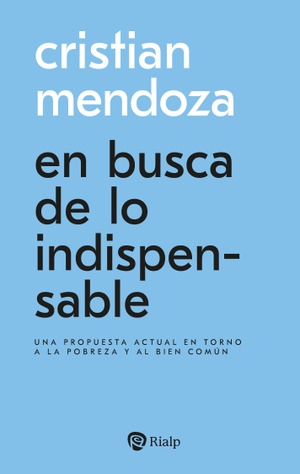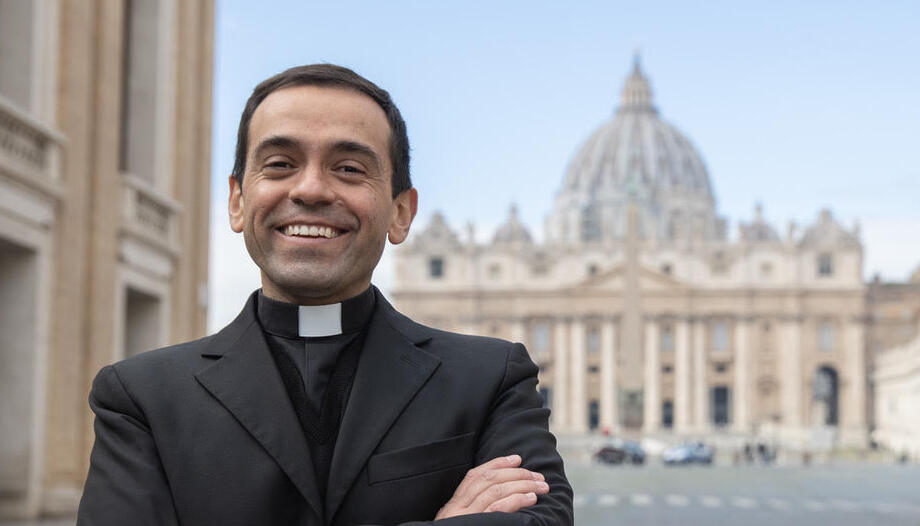"If you work, there is no poverty. If you pray, there is no sin. If you are silent, there is no war. If you are wise, you will have no fear." This Sanskrit aphorism is the axis around which the priest and professor, Cristian Mendoza, revolves his reflections on the povertythe wealthand the human attitude towards them in "In search of the indispensable".
This small book, published by Rialp, makes an interesting approach to the concepts, attitudes and, especially, the personal commitment inherent to every Christian in the spiritual and material development of society.
It is not a book of socioeconomic theory, not even of "economics" in the usual sense, but a reflection that, as its author points out in this interview with Omnes, combines the mandate to guard the creation that God gives to man in the genesis with the detachment of material goods.
Your book deals with poverty or wealth in an integral way (human, spiritual and material). In order to understand one or the other, do we have to take into account the others? Is it possible to develop one of them without the others?
-We could think of each of the possible riches as a gateway to other riches, which widen the possibility of access, but do not occur automatically.
For example, when we have more material wealth we could have more human wealth (education, culture, etc.) but not necessarily.
Or, by having greater spiritual wealth, we give value to higher goods and therefore understand the value of sobriety, of avoiding the superfluous which could lead to greater material wealth.
It states that no one aspires to poverty..., but we see attitudes of "extolling" mediocrity, is it sustainable in the long term?
-The human poverty that mediocrity represents is not sustainable in the long term, because by maintaining one poverty, the ground is prepared for other poverties. In this case, those who do not make an effort to work better will end up with greater material and possibly also spiritual poverty.
As St. Paul VI said, the aspiration for development is part of man's vocation.
The Judeo-Christian tradition considers the Creator who entrusted Adam and Eve with all creation, so we can think that God wants the human being to be very rich in every way.
Poverty and wealth always refer to "the other", can we say that they come with the human being, and will there always be poverty?
-Of course, there will always be poverty because there will always be human possibilities for improvement in every sense. For the same reason there will always be riches.
Poverty and wealth refer to another in the sense that we are always rich or poor with respect to another, it is a measure of value.
The important thing is to think about who that other is: we can learn a lot from our parents, friends, mentors, but also from great sages, writers or saints who have left their mark on this world.
It is also true that there will always be someone richer and poorer than us, which can lead us to be more supportive of our time, our creativity, etc.
Finally, the perception of our poverty or wealth determines us: feeling spiritually poor leads, for example, to the search for inner peace, for a greater balance, for a weighting of one's own life, which are very healthy.
Development (material, spiritual) is to work God's gifts, so why do we see in the Church certain "reticence" or even contempt for economic development or for the "rich"? Have we fallen into the capitalist reductionism of wealth?
-Christianity does not reject wealth, but the disorderly attachment to material goods. Jesus on earth was a friend of wealthy people, as were surely Lazarus, Martha and Mary who lived in Bethany and who were known among the Jews. So was Joseph of Arimathea, who the Scripture explicitly says was a rich man.
Finally, the Lord dealt with Nicodemus who was a principal in the Synagogue and called as an apostle Matthew who was a publican, a tax collector, who possibly had the means to live.
The message of the Gospel asks us to live the virtue of poverty which is detachment of material goods, but he also asks us to guard the goods of the earth in the name of God, and for this it is appropriate to make the best use of one's talents, an attitude that is a source of riches.
In the book, the author presents clear examples of initiatives of different types: educational, economic, and labor initiatives that have addressed development in a comprehensive manner. Are they applicable to the different types of society we see?
-They are applicable in many cases, but above all they are increasingly necessary. After publishing the book, I learned about an initiative that aims to generate human wealth, allowing those who do not have enough resources to pay for a psychologist or psychiatrist to see a therapist.
A university in Sao Paolo (Brazil) trains hundreds of ladies to listen to other ladies, improving their relationships with their children and husbands, changing education and the family. This will most likely result in greater material and spiritual wealth.
Integral wealth is not only produced by giving money, but it is often necessary to develop and recognize the talents of those around us.









